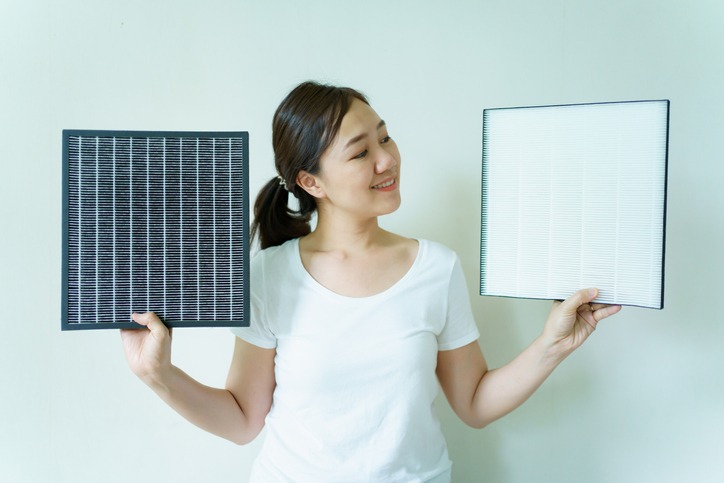Increasingly, homeowners need quality air. The best way to achieve this is through the right air filter. A quality air filter may provide you with cleaner and filter air by capturing harmful airborne particles, like allergens, pet dander, and smoke.
However, considering local hardware stores has a lot of sizes and brands to choose from, it will take time to determine the right one. Unfortunately, not every air filter is created the same. This is why it is important to consider the following tips to choose the right air filter:
1. Know the Filter that Can Fit Your HVAC System
One of the first steps to choosing the right air filter is to know which type can fit your system. The manufacturer’s guide or owner’s manual with your system provides a recommended type and size of the air filter to yield the right results.
Making sure you get a fitting filter is important as it will result in safer and better indoor air quality and, at the same time, boost energy efficiency.
If you have already misplaced the manufacturer’s guide or owner’s manual, consider measuring the dimension of your existing filter to determine which one will be compatible.
2. Look at the MERV Value
The filters’ efficiencies are normally rated on a scale of 16, called MERV rating or value. It stands for Minimum Efficiency Reporting Value. Under efficient conditions, this value explains how well filters are made to hold contaminants.
Although a high MERV number provides better filtration efficiency, MERV filters with a higher value can cost you a lot to operate your AC and furnace systems.
3. Determine Your Options
Primarily, there are types of air filters you may choose from. Among the least expensive and most common options is a fiberglass filter. This type is disposable, and it is made of fiberglass reinforced with a metal rating.
Another air filter option is a pleated filter. It is similar to fiberglass filters. But pleated filters are more durable as well as better when it comes to trapping dust particles. The last option is a washable air filter. It needs regular cleaning.
4. Consider the Filtration Level
Pleated HVAC filters may improve the indoor air quality in your home by trapping pollen, dust, and other particles. However, filters, which are denser for your system, may make it difficult to cool and heat your home efficiently and effectively. It can also damage your heat pump, AC, or furnace over time as parts can over freeze or overheat.
5. Choose between Aftermarket and Original
There are filters, which a specific brand makes to fit the model of the brand. These are called original air filters. On the other hand, aftermarket air filters are those that other companies manufacture so they can fit other brands. Aftermarket air filters are manufactured the same way as original filters and provide the same quality but are cheaper.
The Takeaway!
Air filters are accountable for keeping bad particles, such as allergens, pet dander, dust, and dirt, out of quality air circulating at home. Quality air is important to your health. And the simplest way to make sure you enjoy quality air is to install a good filter.

